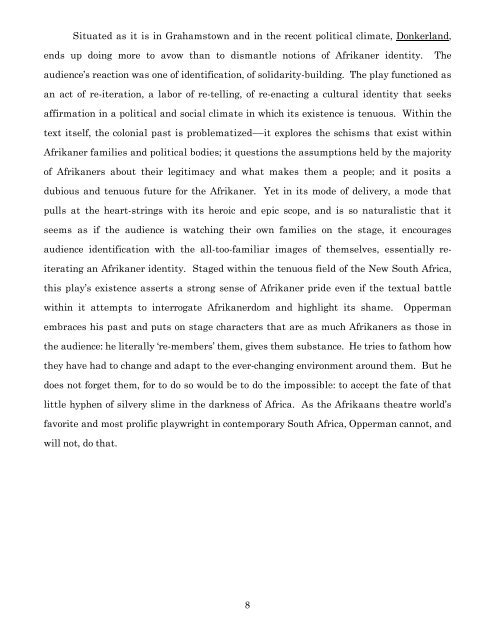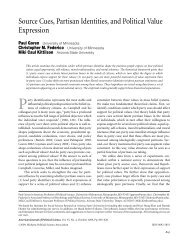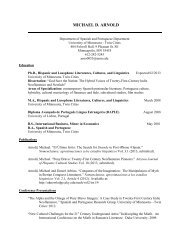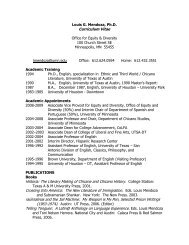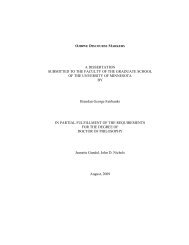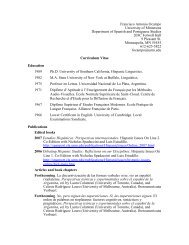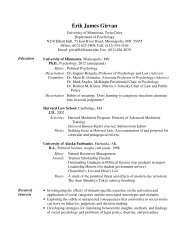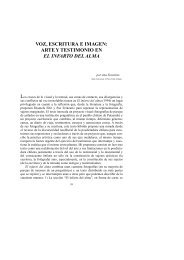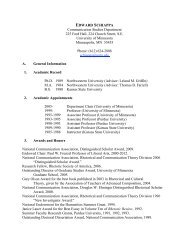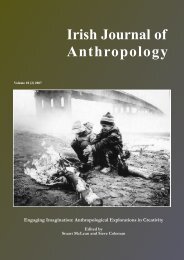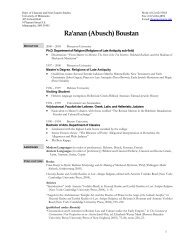De/Re-Constructing Borders - University of Minnesota
De/Re-Constructing Borders - University of Minnesota
De/Re-Constructing Borders - University of Minnesota
You also want an ePaper? Increase the reach of your titles
YUMPU automatically turns print PDFs into web optimized ePapers that Google loves.
Situated as it is in Grahamstown and in the recent political climate, Donkerland,<br />
ends up doing more to avow than to dismantle notions <strong>of</strong> Afrikaner identity. The<br />
audience’s reaction was one <strong>of</strong> identification, <strong>of</strong> solidarity-building. The play functioned as<br />
an act <strong>of</strong> re-iteration, a labor <strong>of</strong> re-telling, <strong>of</strong> re-enacting a cultural identity that seeks<br />
affirmation in a political and social climate in which its existence is tenuous. Within the<br />
text itself, the colonial past is problematized––it explores the schisms that exist within<br />
Afrikaner families and political bodies; it questions the assumptions held by the majority<br />
<strong>of</strong> Afrikaners about their legitimacy and what makes them a people; and it posits a<br />
dubious and tenuous future for the Afrikaner. Yet in its mode <strong>of</strong> delivery, a mode that<br />
pulls at the heart-strings with its heroic and epic scope, and is so naturalistic that it<br />
seems as if the audience is watching their own families on the stage, it encourages<br />
audience identification with the all-too-familiar images <strong>of</strong> themselves, essentially re-<br />
iterating an Afrikaner identity. Staged within the tenuous field <strong>of</strong> the New South Africa,<br />
this play’s existence asserts a strong sense <strong>of</strong> Afrikaner pride even if the textual battle<br />
within it attempts to interrogate Afrikanerdom and highlight its shame. Opperman<br />
embraces his past and puts on stage characters that are as much Afrikaners as those in<br />
the audience: he literally ‘re-members’ them, gives them substance. He tries to fathom how<br />
they have had to change and adapt to the ever-changing environment around them. But he<br />
does not forget them, for to do so would be to do the impossible: to accept the fate <strong>of</strong> that<br />
little hyphen <strong>of</strong> silvery slime in the darkness <strong>of</strong> Africa. As the Afrikaans theatre world’s<br />
favorite and most prolific playwright in contemporary South Africa, Opperman cannot, and<br />
will not, do that.<br />
8


